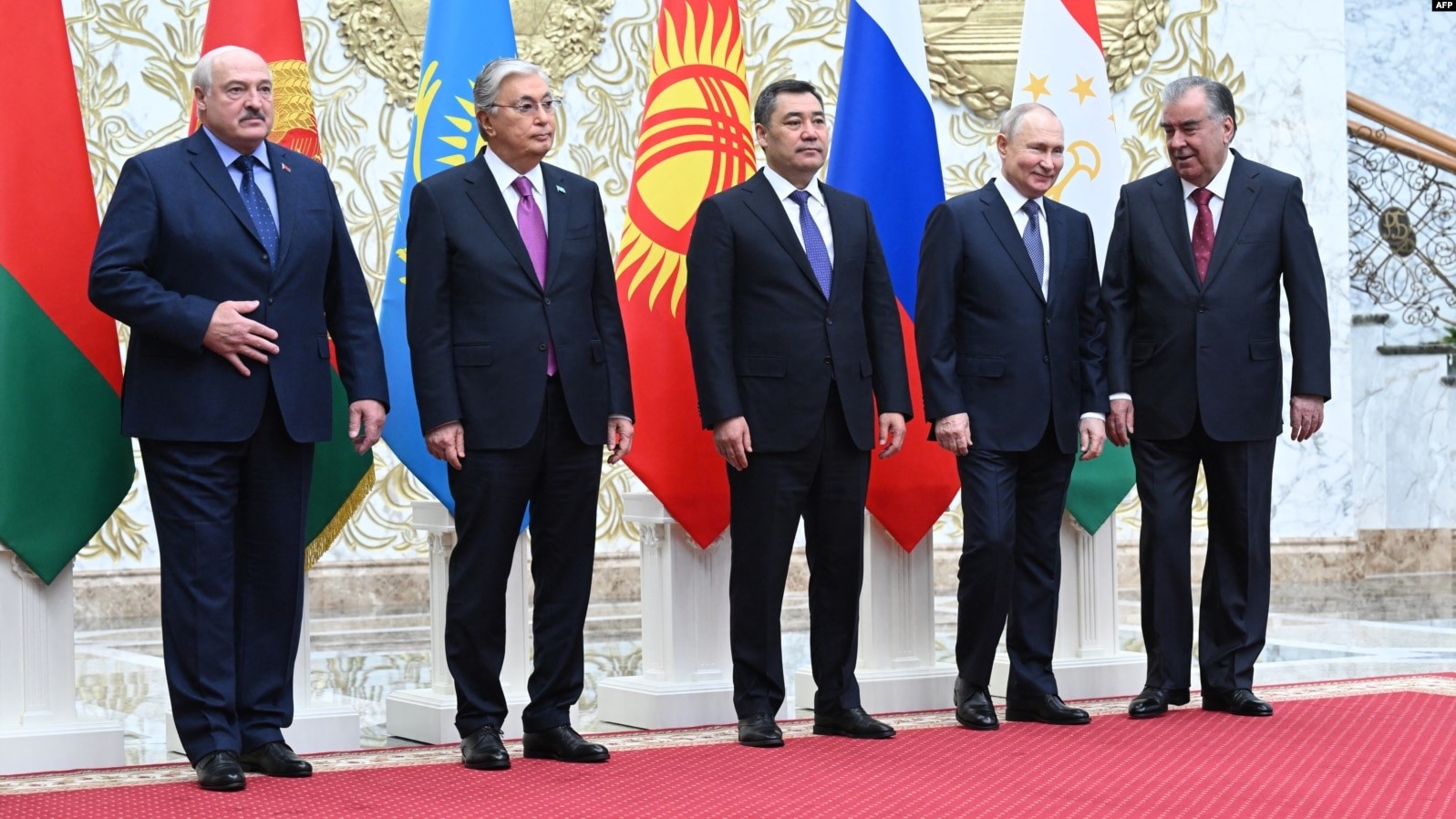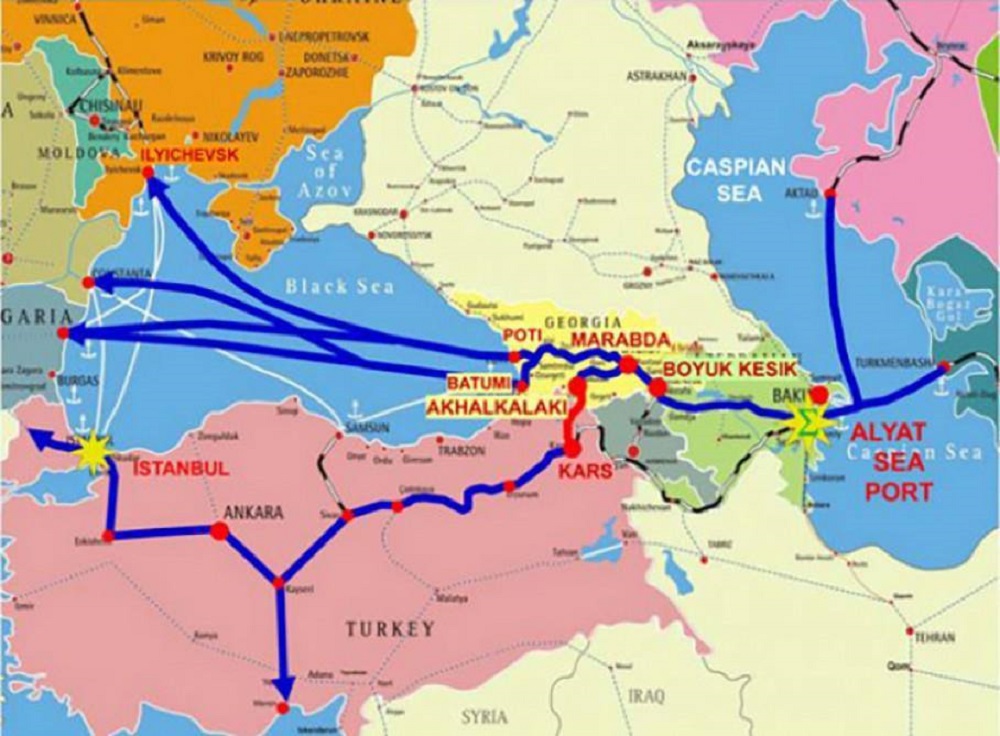"Azerbaijan must build relations with Russia while constantly considering changes in the geopolitical landscape." Opinion from Baku
Russia-Azerbaijan relations
“Azerbaijan is currently in the most favorable period in its bilateral relations with Russia,” say analysts from the Azerbaijani think tank “Şərqə baxış” (“Look to the East”).
They believe that “at present, Russia views the South Caucasus as a friendly neighbor rather than one it seeks to make dependent on itself.” However, this situation, they caution, could change rapidly due to the volatile geopolitical context.
“Therefore, it is best to approach relations with Russia on a case-by-case basis, as Azerbaijan is currently doing,” the experts from “East View” conclude.
- Will a peace agreement be signed with Armenia this year? Commentary from Baku
- “How do we look—ordinary citizens of Georgia who have chosen a government that thinks this way?”
JAMnews presents an article by analysts from the “Şərqə baxış” (“Look to the East”) center on Russia’s interests in the South Caucasus and Azerbaijan’s strategies in dealing with its northern neighbor.
“Azerbaijan is experiencing the most favorable period in the history of its bilateral relations with Russia. Russian troops have been completely withdrawn from the country, and Russia lacks real leverage to directly intervene in internal affairs. Most importantly, Russia is bogged down in a major war in Ukraine and is directing its main resources there.
For the first time, relations between Azerbaijan and Russia are based on ‘friendly neighborliness’ rather than ‘dependency.'”
JAMnews presents an article by analysts from the “Şərqə baxış” (“Look to the East”) center on Russia’s interests in the South Caucasus and Azerbaijan’s strategies in dealing with its northern neighbor.
“Azerbaijan is experiencing the most favorable period in the history of its bilateral relations with Russia.
- Russian troops have been completely withdrawn from the country;
- Russia lacks real leverage to directly interfere in Azerbaijan’s internal affairs.
- Russia is bogged down in a major war in Ukraine and is directing its main resources there.
For the first time, relations between Azerbaijan and Russia are based on ‘friendly cooperation’ rather than ‘dependency.’
For now, Russia views the South Caucasus merely as its immediate geographic sphere rather than a region of its “influence.” From this “immediate sphere,” Russia primarily expects that the countries there will refrain from cooperating with its adversaries.
In other words, Russia is currently content as long as its geographically close neighbors do not deepen their ties with the West.
But undoubtedly, this situation is temporary for Russia.
Moscow has always viewed the post-Soviet space as its “sphere of influence,” considering the independence of the states within it as somewhat conditional.
This imperialistic perspective has a long history. Therefore, it is anticipated that once geopolitical conditions shift in Russia’s favor, Moscow’s stance toward Azerbaijan and the region will also change.
Russia will likely seek to reassert its influence, transforming the relationship from mere friendly cooperation to a renewed sphere of dominance.
What factors might prompt such a shift?
1. The influence of the USA.
It appears that Trump is focused on ending the war in Ukraine but shows little interest in the South Caucasus. This could imply the following:
Should Trump be re-elected in November, it is plausible that Russia might seek to assert greater control over the South Caucasus.
Such a scenario could unfold in the near future.
2. The influence of Turkey
The influence of Turkey is another crucial factor shaping Azerbaijan-Russia relations. Currently, this relationship shows a negative trend.
Given these two dynamics, it should not come as a surprise if, by spring 2025, Azerbaijan-Russia relations take on a more strained and complex character.
In February 2022, when Moscow signed a declaration of allied relations between the two countries, experts in Baku had many questions.
However, over the past two years, Azerbaijan has leveraged the shifting geopolitical landscape to achieve its goals with Russia through behind-the-scenes diplomacy.
This also underscores that a pragmatic foreign policy is effective in dealings with Russia; adapting to the geopolitical landscape remains the best strategy.
Viewing Russia as an “absolute evil,” engaging in emotional responses, or participating in geopolitical projects against it could prove disastrous for the South Caucasus.
The old adage holds true in relations with Russia: “Call the bear ‘uncle’ until you’ve crossed the bridge.”
Russia-Azerbaijan relations




















